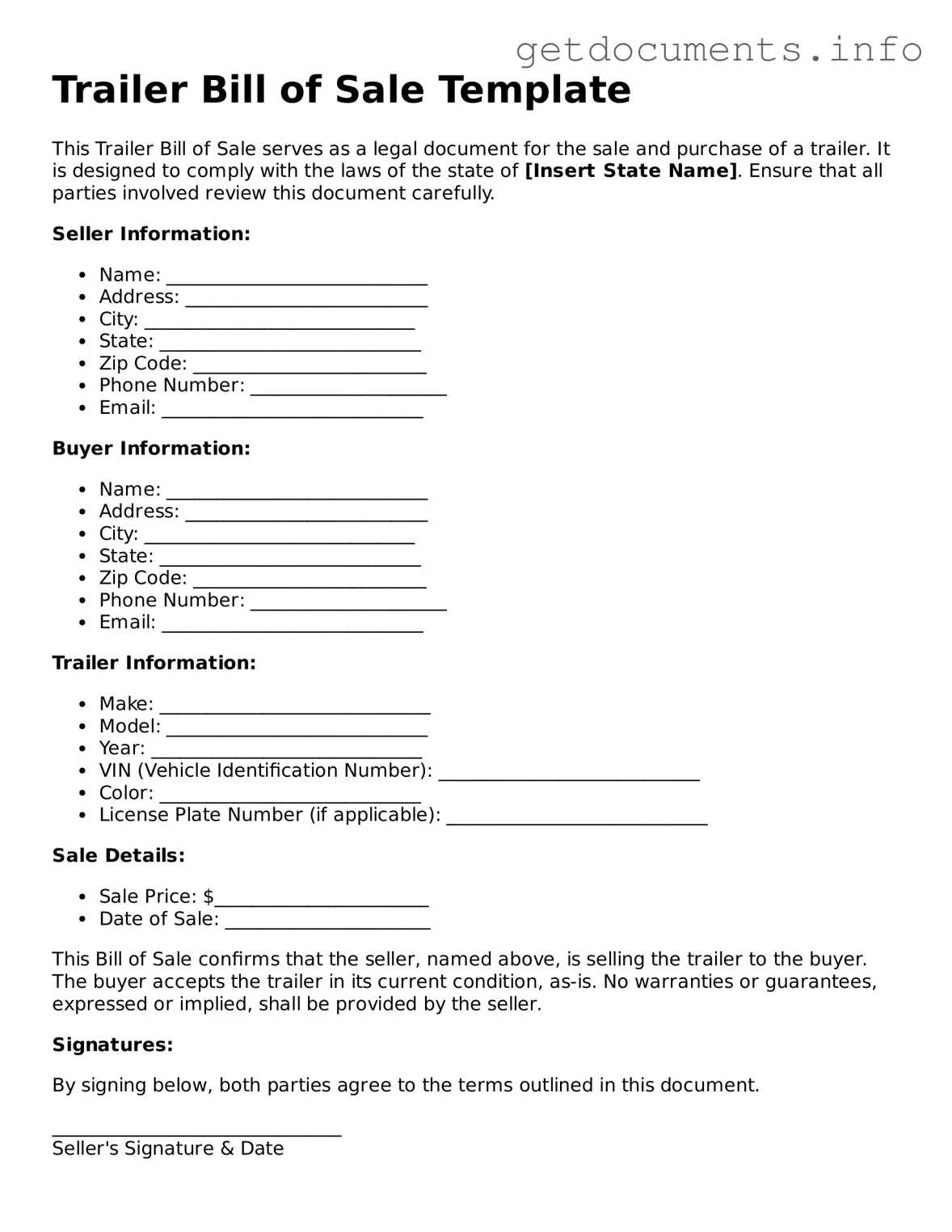Printable Trailer Bill of Sale Document
The Trailer Bill of Sale form is a crucial document that facilitates the transfer of ownership for a trailer from one party to another. This form outlines essential details such as the trailer's description, the sale price, and the signatures of both the buyer and seller. Ensuring that this form is properly filled out is vital for legal protection and clear ownership transfer; start the process by clicking the button below.
Access Trailer Bill of Sale Editor

Printable Trailer Bill of Sale Document
Access Trailer Bill of Sale Editor
Got places to be? Complete the form fast
Fill out Trailer Bill of Sale online and avoid printing or scanning.
Access Trailer Bill of Sale Editor
or
⇩ PDF File
